The following mechanism has been proposed for the exothermic catalyzed cmplex reaction:
If is much smaller than , the most suitable qualitative plot of potential energy versus reaction coordinates for the above reaction is
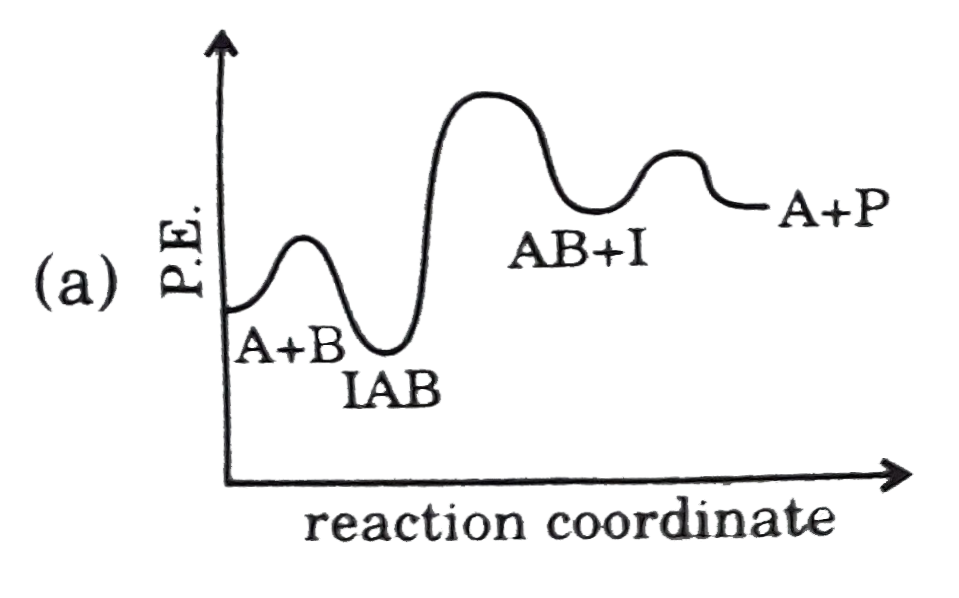
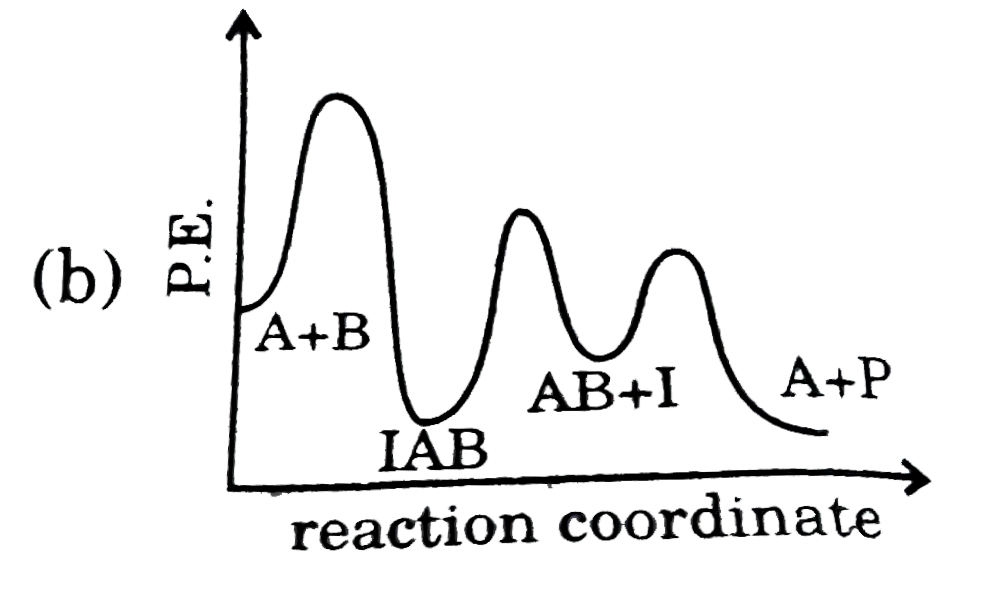
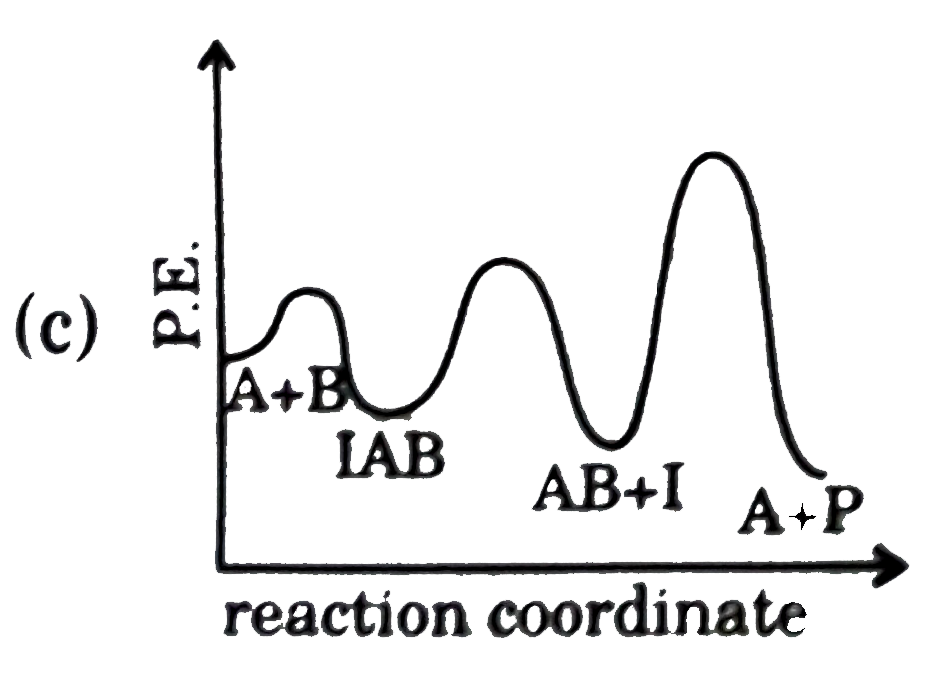
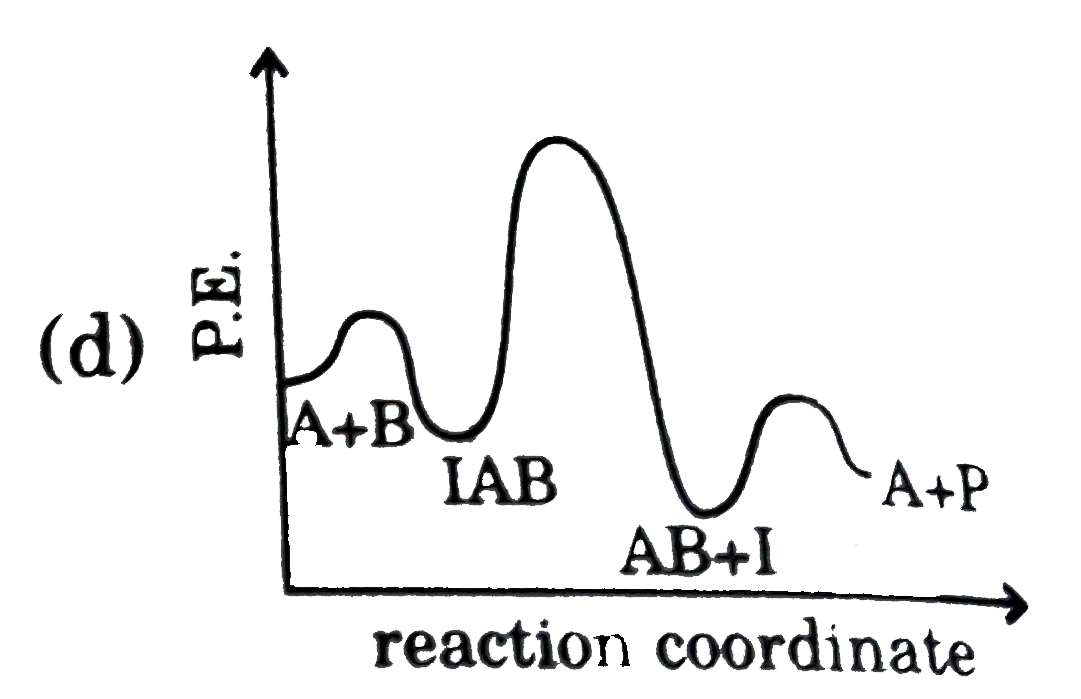
The correct Answer is:D
Step by step video, text & image solution for The following mechanism has been proposed for the exothermic catalyzed cmplex reaction: A + B overset("Fast")rarr IABoverset(k_(1))rarrAB+Ioverset(k_(2))rarrP+A If k_(1) is much smaller than k_(2), the most suitable qualitative plot of potential energy (PE) versus reaction coordinates for the above reaction is by Chemistry experts to help you in doubts & scoring excellent marks in Class 12 exams.
Updated on:21/07/2023Topper's Solved these Questions
- GRAPHICAL INTERPRETATIONBook:GRB PUBLICATIONChapter:GRAPHICAL INTERPRETATIONExercise:I.Electrochemistry
Explore 1 Video
- GRAPHICAL INTERPRETATIONBook:GRB PUBLICATIONChapter:GRAPHICAL INTERPRETATIONExercise:Electrochemistry
Explore 9 Videos
- GRAPHICAL INTERPRETATIONBook:GRB PUBLICATIONChapter:GRAPHICAL INTERPRETATIONExercise:H. Chemical Kinetics
Explore 1 Video
- F-BLOCK ELEMENTSBook:GRB PUBLICATIONChapter:F-BLOCK ELEMENTSExercise:Subjective type
Explore 7 Videos
- HYDROCARBON (ALIPHATIC)Book:GRB PUBLICATIONChapter:HYDROCARBON (ALIPHATIC)Exercise:Previous years jee questions
Explore 28 Videos
Similar Questions
Knowledge Check
A consecutive reaction, AK1−−→BK2−−→C is characterised by:
AMaximum in the concentration of ABMaximum in the concentration of BCMaximum in the concentration of CDHighly exothermicityIn the sequence of reaction,
Lk1−−→Mk2−−→Nk3−−→O
k3>k2>k1
The rate determining step of the reaction is :AL→MBM→NCN→ODL→OThe overall rate d[P]dt, for the reaction 2AK⇐⇒B,B+Ckf−−→P is given by
AKkf[A]2[C]BK[A][B]Ckf[B][C]DKkf[A]2[B][C]
Conisder the following reactions:
I. A+Bk1⇐⇒k−1C
II. C+Bk2−−→D
Then k1[A][B]−k−1[C]−k2[C][B] is equal to
View SolutionIn the series reaction
AK2−−→BK2−−→CK2−−→D , if K1>K2>K3 then the rate determing step of the reaction is
View SolutionFor the two step reaction in which both the steps are first order
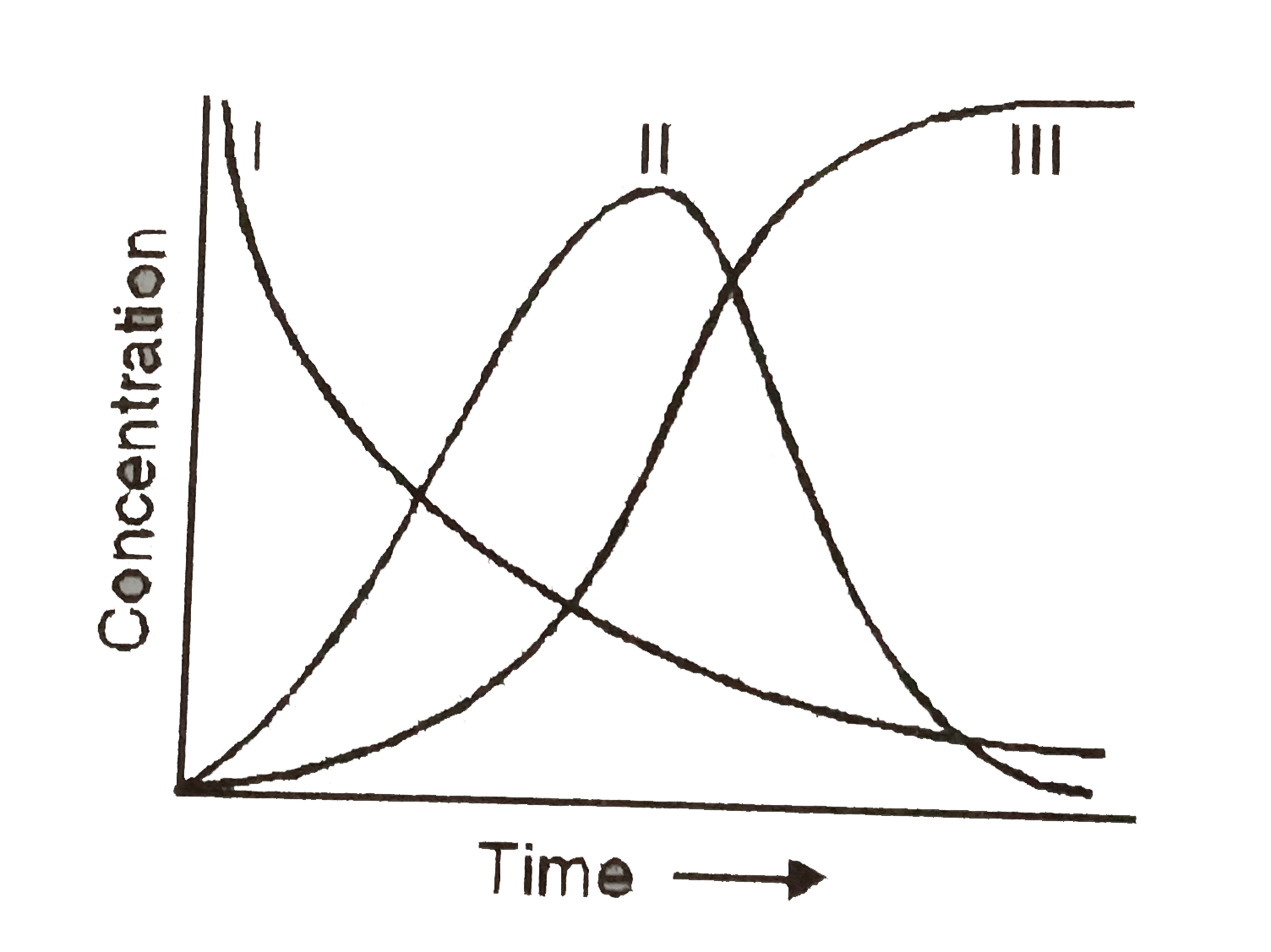
Rk1−−→I
Ik2−−→P
the rate of change of concentration of I is given by the plot
View SolutionA reaction is represented by Ak1−−→B (slow ) and A+Bk2−−→C (fast) where k1 and k2 are the ratge constants of two steps. The rate of production of C will be given by
View SolutionA following mechanism has been proposed for a reaction
2A+B→D→E
A+B→C+D(slow)
A+C→E (fast)
The rate law expression for the reaction by RDS methd is:
View Solution

